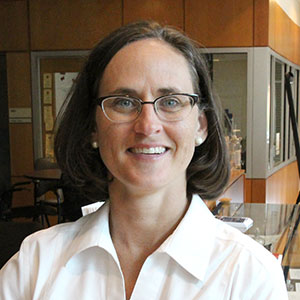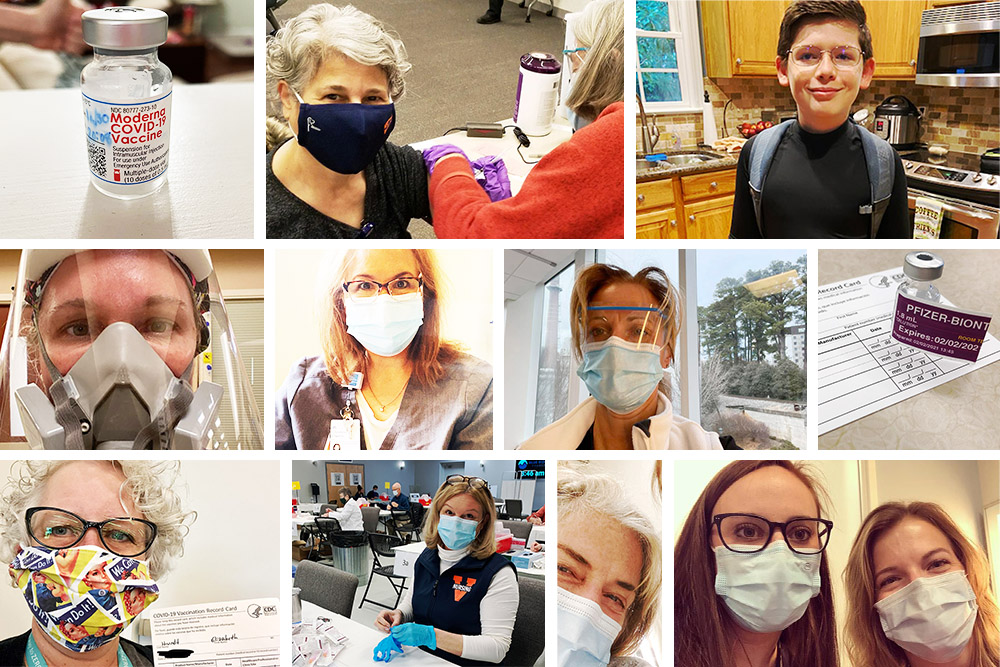
Keep On Vaxxing
By her own estimate, master's student Heather Cowan has vaccinated well over 500 people against coronavirus.
With each inoculation, nurses say they feel like they’re spreading hope.
---
Frontline healthcare workers and elderly couples alike file into the UVA Health clinic and eagerly roll up their sleeves. Some are even more exuberant.
“One gentleman in his early 80s literally took his shirt off before he sat down,” Cowan says, recalling one of the many unforgettable moments during her shifts. Since the rollout began last December, Cowan and dozens of fellow students and nursing faculty volunteered early and often to administer the shot, picking up shifts after work and between classes, determined to “keep on vaxxing” for as long as it takes to put an end to this pandemic. READ Big Shots
READ Big Shots
With each inoculation, nurses say they feel like they’re spreading hope. Relief is palpable, and gratitude overwhelming. “I’ve never had so many ‘thank yous’ for giving an injection in my entire professional career,” says assistant professor Beth Hundt (PhD `18).
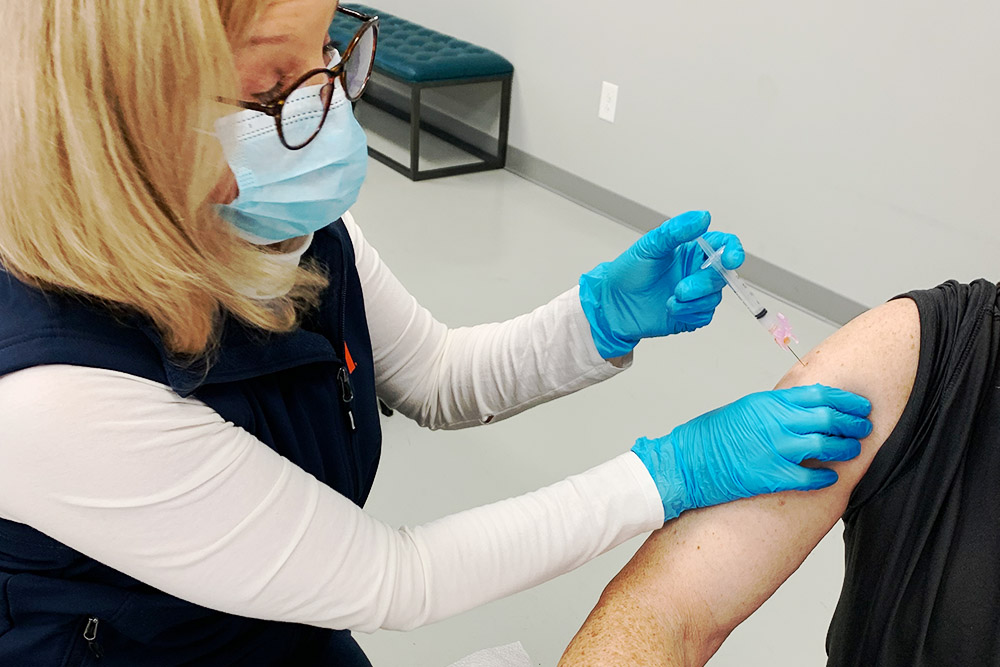
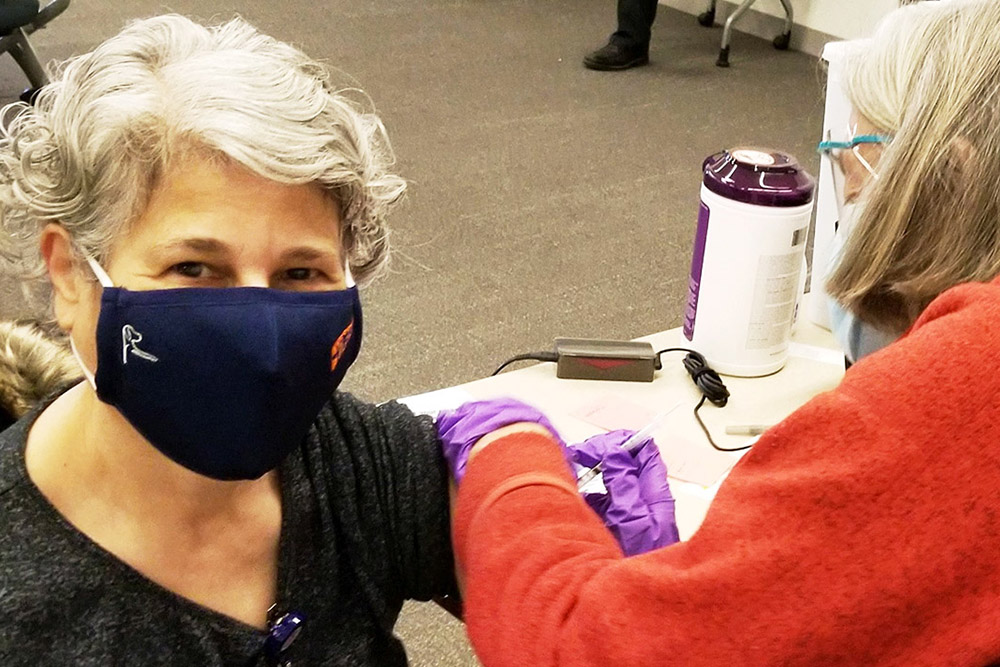
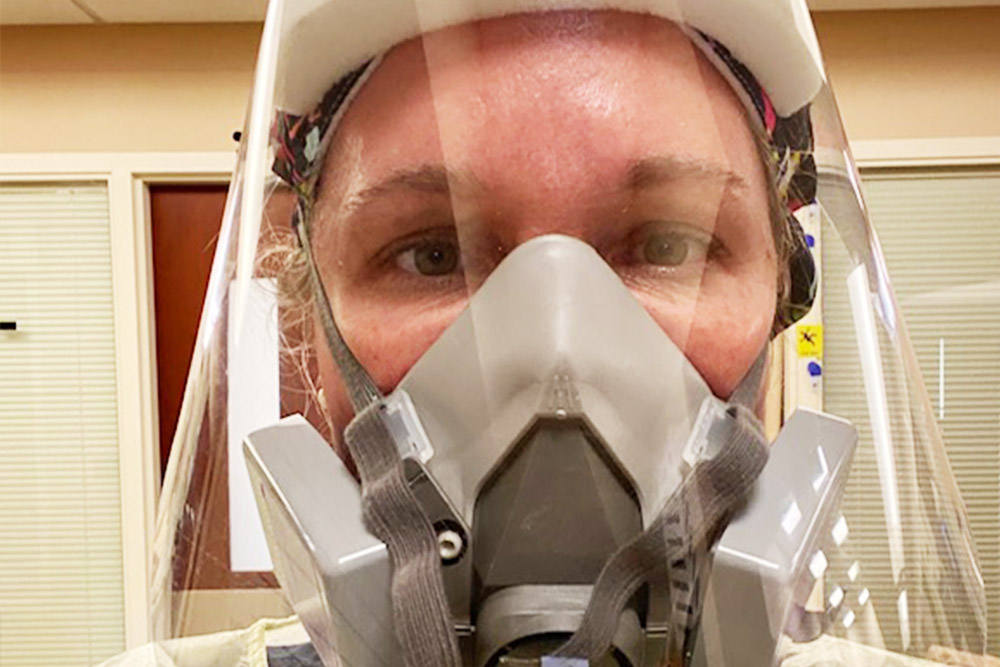
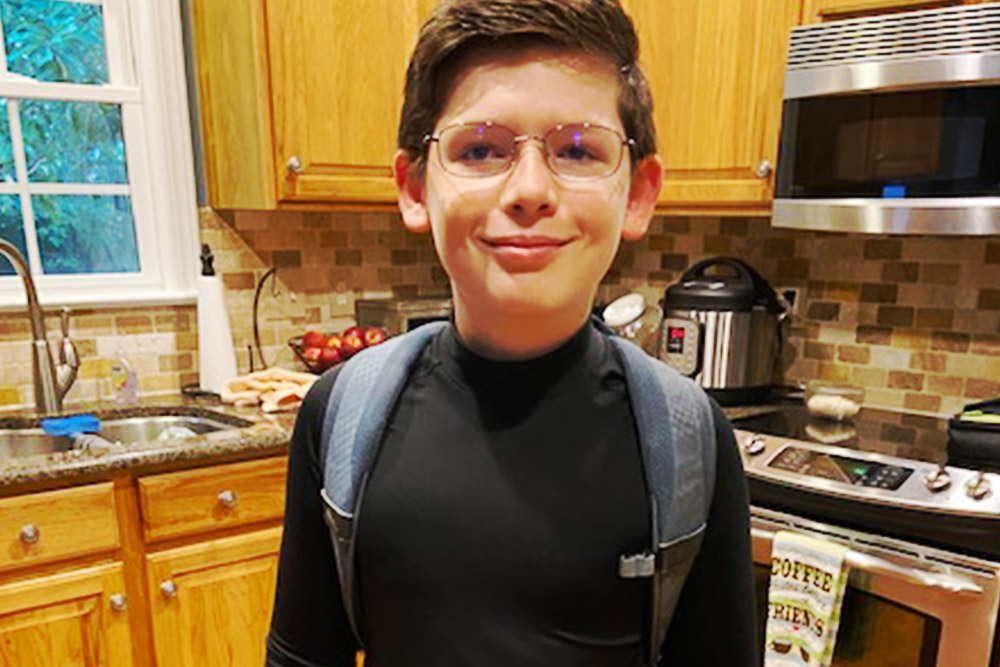
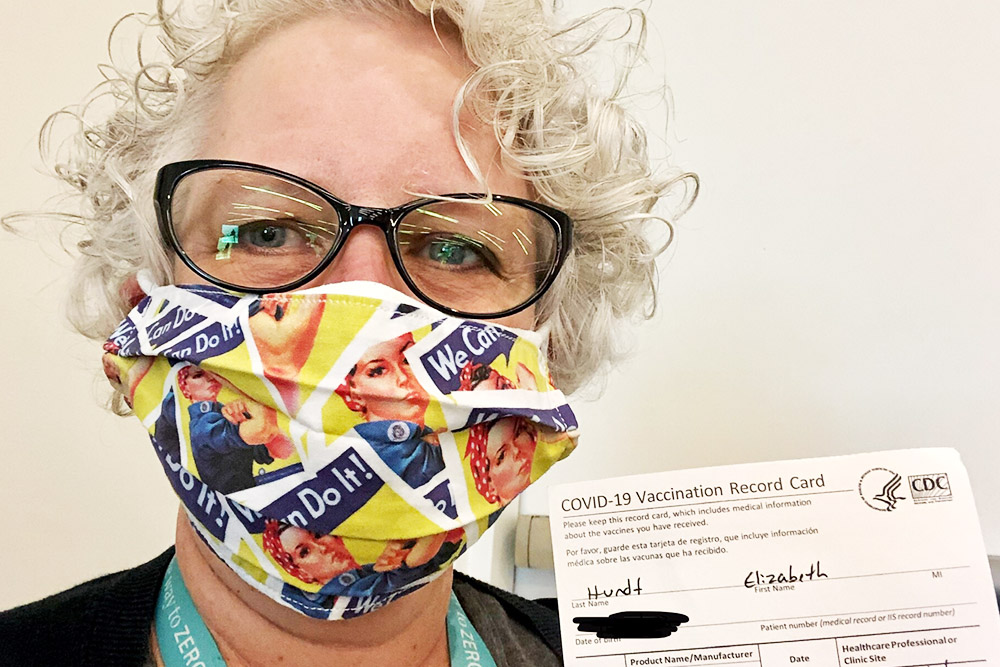
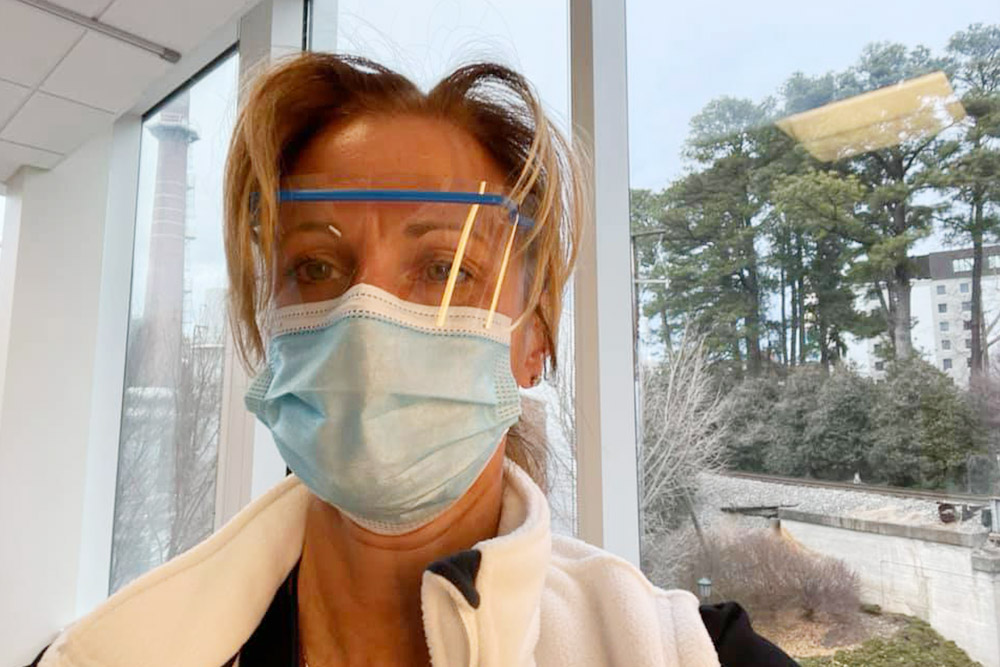
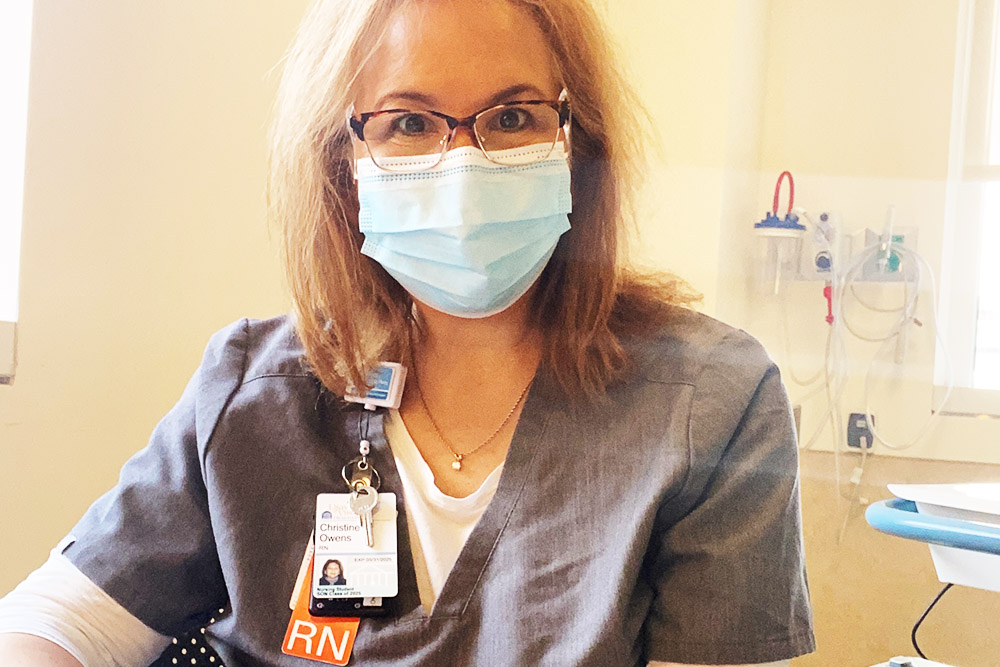
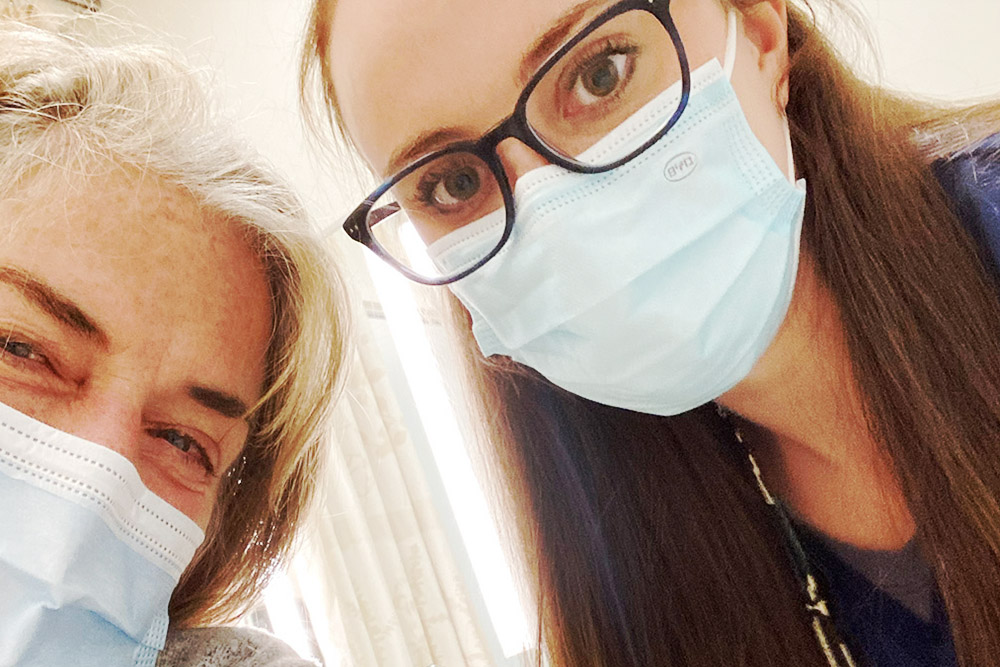
Pent-up emotions sometimes spill over when some take a seat for their shot. There are high fives and celebratory selfies. And while life hasn’t returned to normal, there is growing promise of resuming some ordinary pleasures—hugging grandchildren, traveling to see family out of state—and being able to do it without fear.
Nurses like Kelly Lewandoski, a DNP student who works at St. Francis Medical Center in Richmond, Va., have also encountered many who are grieving. “I’ve cried along with vaccine recipients who shared their experience in losing loved ones to COVID,” she says. “They’re thankful that the vaccine is here but wishing it wouldn’t have been needed.”
Many call the work a career high point.
“The ability to ease anxiety and fear while spreading joy and hope by just telling them that they are getting the vaccine is profoundly rewarding,” says assistant professor Beth Quatrara (MSN `97, DNP `10). “It is also my big opportunity to help put an end to this pandemic, to ease the burden on the care teams, and relieve the stress on our communities.”
While many are educated about the vaccine, nurses still encounter pockets of skepticism. Master’s student Christine Owens, who’s often addressed people’s misgivings and debunked vaccine myths, draws on a lot more than her clinical expertise.
“We’ve been able to use our diverse skill sets to educate and to share information about the vaccines to our colleagues and community members—and even learn from those that are participating in COVID-19 vaccine research,” she says.
Despite the clinics’ hectic, assembly-line pace, the genuine camaraderie and teamwork has made the whole experience fun.
“No one hesitates to jump up to wipe down chairs for the next client,” says Quatrara, “or empty trash for teammates, or restock supplies. Titles don’t matter, and everyone pitches in to get the work done and maintain the clinic’s mission.”
If a few extra doses remain at the end of the day, calls are quickly made to locate clients in immediate need; no dose is wasted.
After nearly a year of lockdown and Zoom, the opportunity to volunteer has been rejuvenating. So has pre-licensure students’ eagerness to get involved with the vaccination effort, which they’re training for through newly developed simulated practice scenarios pioneered by professors Ryne Ackard, Bethany Coyne (BSN `94, MSN `99, PhD `12), Sarah Craig (MSN `10, PhD `14), and Emma Mitchell (MSN `08, PhD `11) as part of their community health clinical rotations. The team expects BSN and CNL students who wish to volunteer as supervised vaccinators to be ready to do so by March and April.
“When you’re doing Zoom all the time for work, it’s hard to feel like you’re getting things done, even though you are,” says Coyne. “It feels like we’re doing our nursing job again.”


